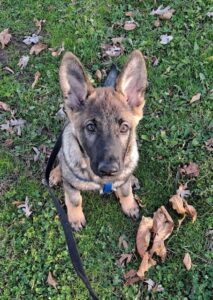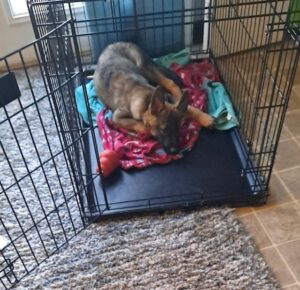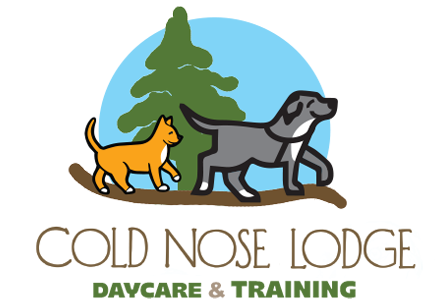Potty Training in the Cold!
Part two in our Pandemic Puppies series
By Angelina Worman CPDT-KA
Medical Coordinator Cold Nose Lodge
Baby it’s cold outside!
It is getting colder and your pandemic puppy is in the potty training phase of life…ughhh!!
Guess I didn’t fully think this through. He is lucky he is cute… just kidding but I know people have these feelings sometimes. I am going to give you some tips to make it easier.
Routine and Structure
Ok here we go!
● Keep your shoes, coat and leash by the door.
● Get your puppy used to going out on the leash to help keep him on task. Those leaves and dirt are very distracting!
● Use a word or small phrase when he is ACTIVELY going potty. Ex: “Good go potty!” Praise with affection. Eventually, you can say “Go potty” and he will have learned through repetition to do so.
● Some people give a treat after going…be sure to give the treat right away outside to avoid him learning to run inside without pottying! They’re smart lil monkeys!
● Feeding routine- always the same time every day. Constant access to food = always producing poop!!
● Always let your puppy out 20 minutes or so after eating or activity or excitement or play.
● If your puppy goes out and you have spent an adequate amount of time for pottying (10-15 mins on leash) and he has a habit of going once inside… place him in the crate for 5 mins and take him back outside.
● Rinse and repeat!
Puppy Bladders
 Crates are great management tools and help with teaching relaxation techniques. He chooses to go in when he feels the need. Whatta good boy… sometimes! Lol
Crates are great management tools and help with teaching relaxation techniques. He chooses to go in when he feels the need. Whatta good boy… sometimes! Lol
Ok now some tips:
● Rule of thumb: follow this equation for figuring out how long your puppy can hold their urine: Puppy age in month + 1 = amount of hours the puppy can “hold” it.
a. 3 months old + 1 = 4 hours
b. 5 months old + 1 = 6 hours
● The above rule of thumb does not take into account that puppies when excited or play will have to potty more. This is due to drinking more water and just the sheer excitement and activity.
● Crate training or confinement training is ideal. Dogs are den animals and like to have a place to themselves to decompress. This is also helpful in managing bad behaviors and/or preventing housebreaking issues (accidents). This is a place the pup can go to chew a bone or rest when you are not able to watch him 100%.
● If you need crate training or confinement training handouts let us know!
